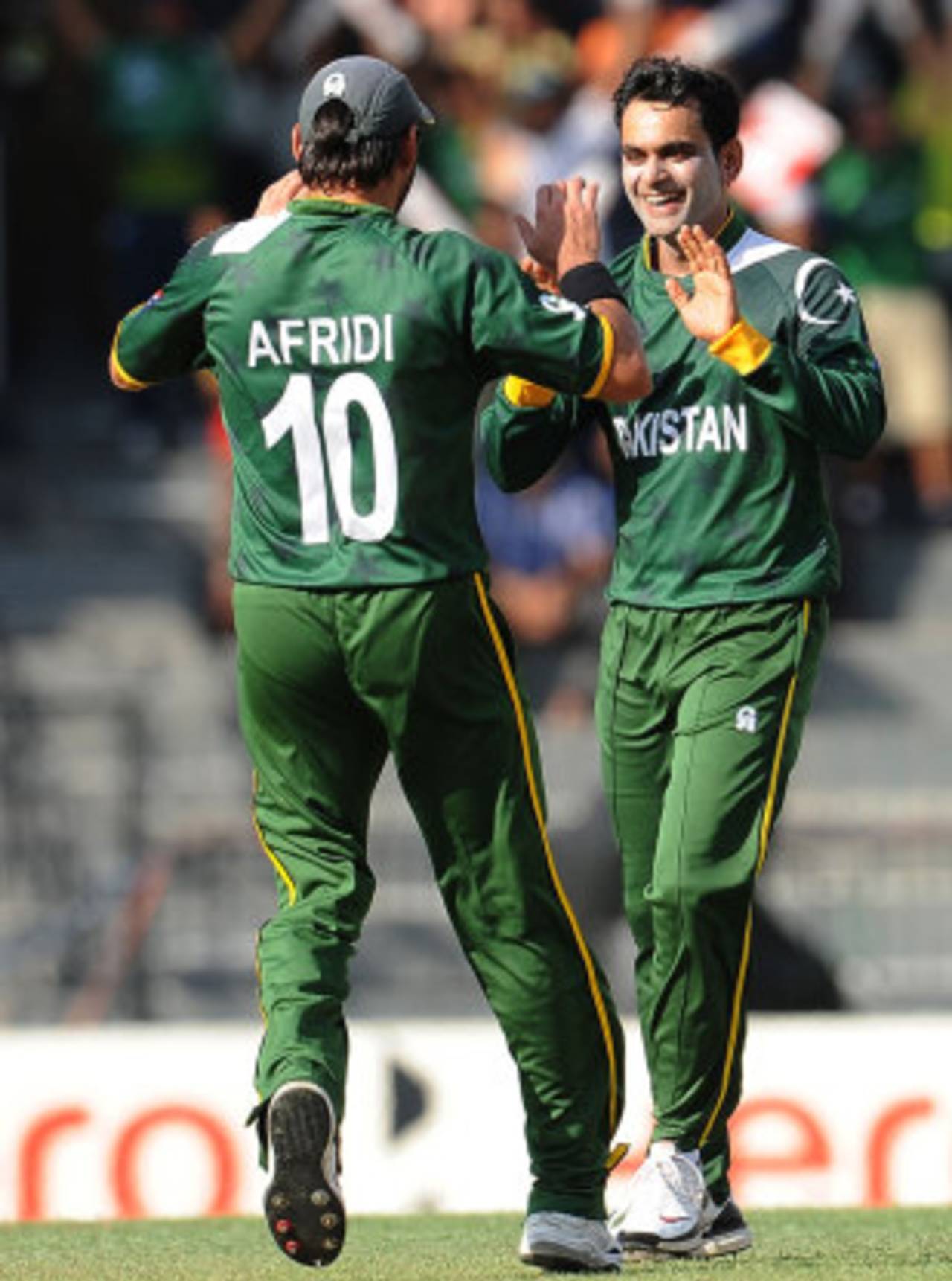Every World Cup brings with it a certain flavour and feel. For Pakistan, this one in Sri Lanka is starting to feel like 1999. I know that's not the most accurate analogy, because 1999 was a 50-over tournament, and the ICC shies away from calling the current competition a World Cup, preferring the term "World Twenty20" instead. But a world tournament is still a world tournament. There are pre-tournament favorites, skirmishes in the qualifying stages, and fireworks in the knockouts. The entire cricket universe tunes in and pays attention. As each tournament evolves and plays out, it creates its unique fingerprint.
For Pakistan fans old enough to remember, the World Cup of 1987 had the feel of a celebration that ended in heartache. The one in 1992 had the feel of a heartache that ended in celebration. From 1996, the feeling is of a promise unfulfilled, while the World Cups of 2003 and 2007 smacked of premature death. Then we have the World Twenty20 of 2009, which was a surprise gift at a time when Pakistan had expected nothing but sticks and stones. Meanwhile, the World Cup of 2011 and the World Twenty20 tournaments of 2007 and 2010 are other cases of promise unfulfilled.
That leaves the 1999 World Cup, which has left the strangest aftertaste of all. It started out beautifully and ended bizarrely. Australia were outright favourites, and during the group stage, Pakistan overpowered them in a nail-biter. In this 2012 World Twenty20, South Africa started out favourites, and Pakistan have
overcome them in the Super Eights. In South Africa and in Pakistan, few hands have nails left intact.
The 1999
group win over Australia was a loud advertisement for Wasim Akram's thinking captaincy and the versatility of his team's repertoire, instantly pushing Pakistan to the status of a hot favourite. Friday's win over South Africa has similarly announced Mohammad Hafeez's remarkably out-of-the-box leadership, and Pakistan's formidable variety and depth. On bookmakers' websites, Pakistan had thus far been languishing in the bottom half. After defeating South Africa, they have overnight become top title favourites.
The real significance of the match was Hafeez's display of boldness and comfort with experimentation. Umar Akmal may have anchored the batting, and Umar Gul may have been named Man of the Match, but it was Hafeez's brilliant opening gambit of bowling
Raza Hasan that applied a chokehold from which South Africa, despite a hearty struggle, eventually failed to escape. Raza is a novice at the international game. He has yet to play ODIs or Tests, and the South African match was only his fourth T20 international. Despite a slew of effective bowlers at his disposal, Hafeez trusted him with an opening spell against the likes of Hashim Amla, Jacques Kallis, and JP Duminy.
Raza delivered the innings' first, third and fifth overs, sending down dot ball after dot ball. His second over, to Kallis, was a maiden. His stifling line and tight trajectory softened up South Africa's top order, making them easy prey from the other end. Raza's success has wider significance too. It underscores what is fast emerging as the great truth of T20 cricket: that accurate spin can be lethal. Traditionally spinners have not commanded much respect in limited-overs cricket, but when the game is compressed to a point that batsmen must take risks at every ball, skilful spin bowling suddenly acquires a sharp new set of fangs.
Pakistan may not be on top of the ICC rankings, and certainly their supporters tend to be famously skeptical about the side's winning abilities, but the statistical reality is that T20 is Pakistan's game. They have the
second-best win-loss ratio in T20I cricket, and have pulled off more T20I victories than any other team. The
three highest wicket-takers in T20Is are all Pakistanis. Pakistan is the only team to have made the semi-finals of each of the three previous World Twenty20 contests.
This is still anyone's tournament, but you can see that Pakistan are starting to click well. There is a maturity and mellowness in the way they are going about their business. They are smiling and laughing easily. The body language is sharp, and their mutual eye contact conveys respect and regard. They are making mistakes but not wallowing in regret afterwards. Most importantly, they are winning, and in the process they are creating momentum and adding self-belief. Even against India, whom Pakistan have never beaten in World Cup competition, they would start as favourites.
Eventually, the 2012 World Twenty20 will generate its own unique feel and fingerprint, providing a reference point to which future tournaments will perhaps one day be compared. For now, the best we can do is to keep drawing comparisons with the past. After overcoming Australia at the group stage in 1999, Pakistan faced them again in the final, and crumbled to a depressing loss. If the analogy is extended, then Pakistan and South Africa would be expected to meet in the final here. Hopefully for Pakistan, this tournament's resemblance to 1999 will end right there.
